Sleep Myths You Can Ignore
These sleep experts lift the covers on our commonly held beliefs.
By Corrie Pikul
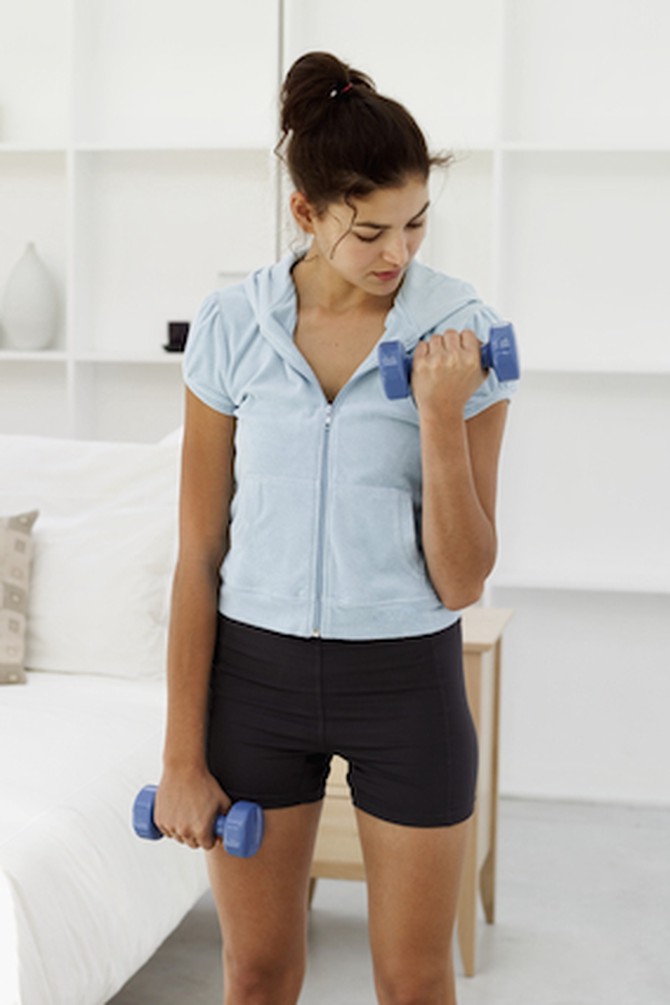
Photo: Thinkstock
"Exercising before bed will make it hard for you to settle down."
Huge news for busy people, procrastinators and those who love to run in the moonlight: You can now work out before bed. Doctors and sleep experts (as well as your mom) previously recommended against this—the thinking was that the boost in adrenaline and heart rate would keep you awake. However, there wasn't a lot of solid evidence to support that theory. Then earlier this year, the National Sleep Foundation (NSF) found in a large survey that those who report exercising close to bedtime don't usually experience any differences in sleep quality compared with those who exercise earlier in the day. In a striking reversal, the NSF deleted the "no sweat before bed" rule from its sleep hygiene recommendations and now advises that exercise at any time of the day appears to be good for normal sleepers (chronic insomniacs might want to check with a specialist first). There's even evidence that light exercise—walking, yoga, Pilates, toning with weights—before bed can help you sleep, says H. Craig Heller, a biology professor at the Stanford University School of Medicine. The activity makes you feel slightly warm, and if you then go into a chilled bedroom, the drop in body temp will put right you out.
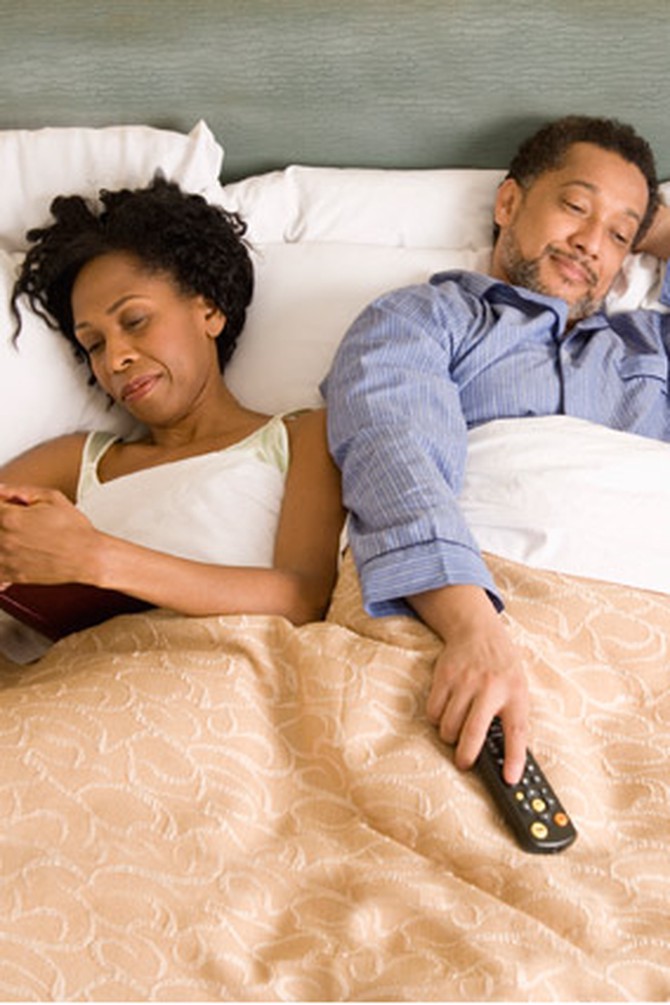
Photo: Thinkstock
"Dozing off to the TV is the worst thing you can do."
Several sleep experts admitted to us that they regularly watch TV in bed—even though they warn patients never to do this. They, like lots of people, have fallen into the habit of letting background noise lull them to sleep. However, their televisions don't stay on throughout the night, because the light from the screen stealthily interferes with the brain's production of melatonin and disrupts deep sleep, says Sam J. Sugar, MD, director of sleep services at the Pritikin Longevity Center & Spa in Doral, Florida. Sugar recommends either turning off the monitor display or, better, putting the television on a timer that will power down the entire system after 30 minutes—by which time you will likely have drifted off (hopefully not in a propped-up position with your face turned to the screen).
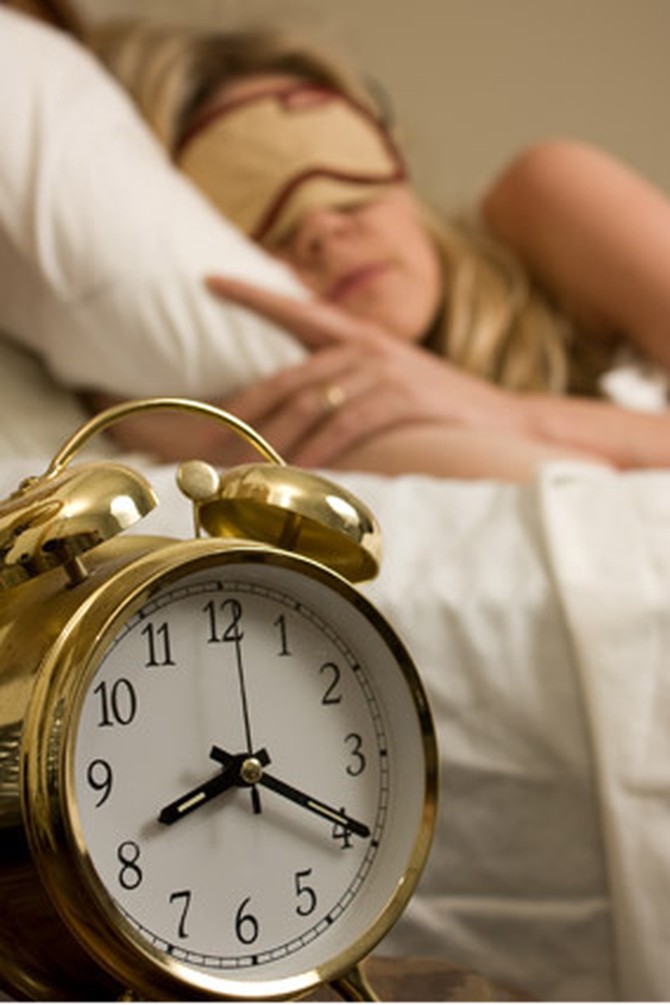
Photo: Thinkstock
"Almost everyone needs eight hours."
Most people need closer to seven or seven and a half hours, says Michael Breus, PhD, clinical psychologist and author of The Sleep Doctor's Diet Plan, and adds that some people get by just fine with six and a half. If you're going to bed and waking up at the same time almost every night, sleeping comfortably, and aren't drowsy, run-down or desperate for a nap during the day, then your schedule works for you. If you think you're one of those people who need less than six hours, you're probably kidding yourself. While a select group of "super sleepers" can get by on barely any shut-eye, they're extremely rare and make up only 1 to 3 percent of the population.
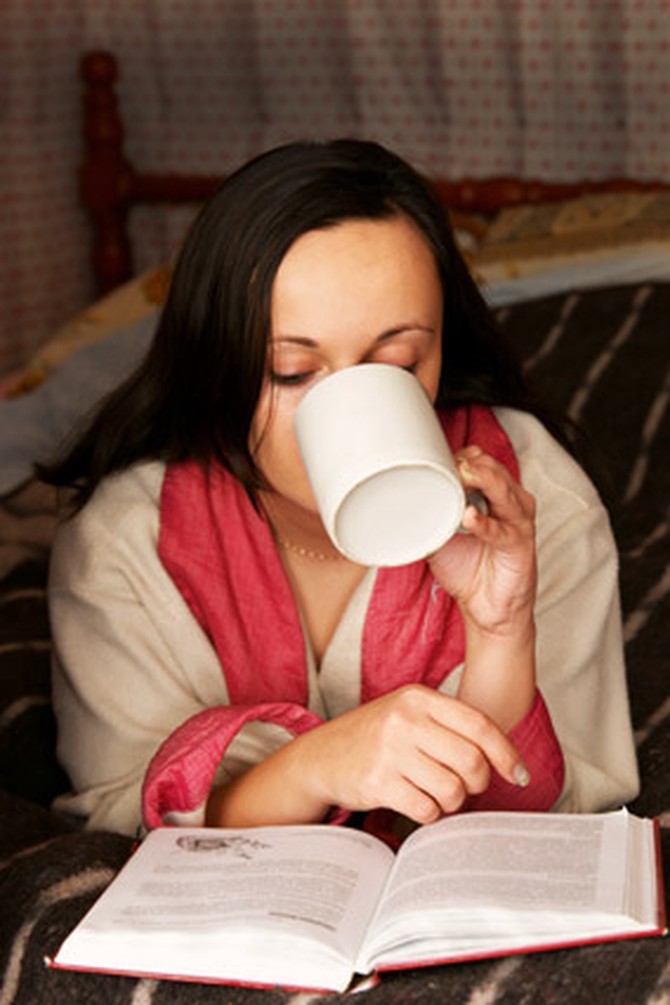
Photo: Thinkstock
"Only some people are affected by caffeine before bed."
Breus is always surprised at the number of people who tell him that they can have a cup of coffee before bed with no negative effects. "Caffeine is a stimulant that has been proven to affect everyone," says Breus. "I know that if I measured their brain waves with an EEG, we'd see an increase in mental activity that could disrupt sleep." Breus says that most people who make this claim are probably so exhausted and sleep-deprived that they're still able to fall asleep despite the extra stimulation. But if they skipped their evening mug, they'd most likely have a calmer brain and a more restful night.
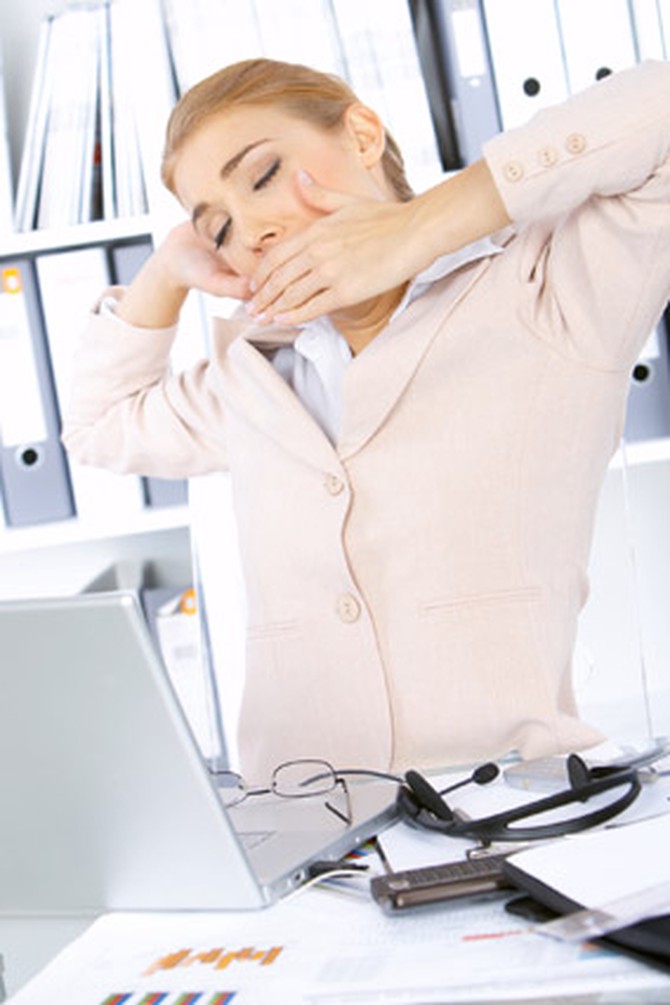
Photo: Thinkstock
"Insomniacs can catch up on their lost sleep during the day."
"In most cases, insomniacs get enough sleep at night to prevent them from dozing off during the day," says Clete A. Kushida, MD, PhD, medical director of Stanford Sleep Medicine Center. The sleep isn't very restful, though. And a nap isn't usually an option, because Kushida says insomniacs don't just have trouble sleeping at night; they have trouble sleeping, period. The same racing mind and internal mechanisms that keep them up at 3 a.m. will trouble them at 3 p.m.—even if they find a dark, quiet room and a soft place to curl up. This is why it's so important for them to seek help through their primary-care physician or sleep specialist when they first start noticing the problem, instead of letting it become chronic.
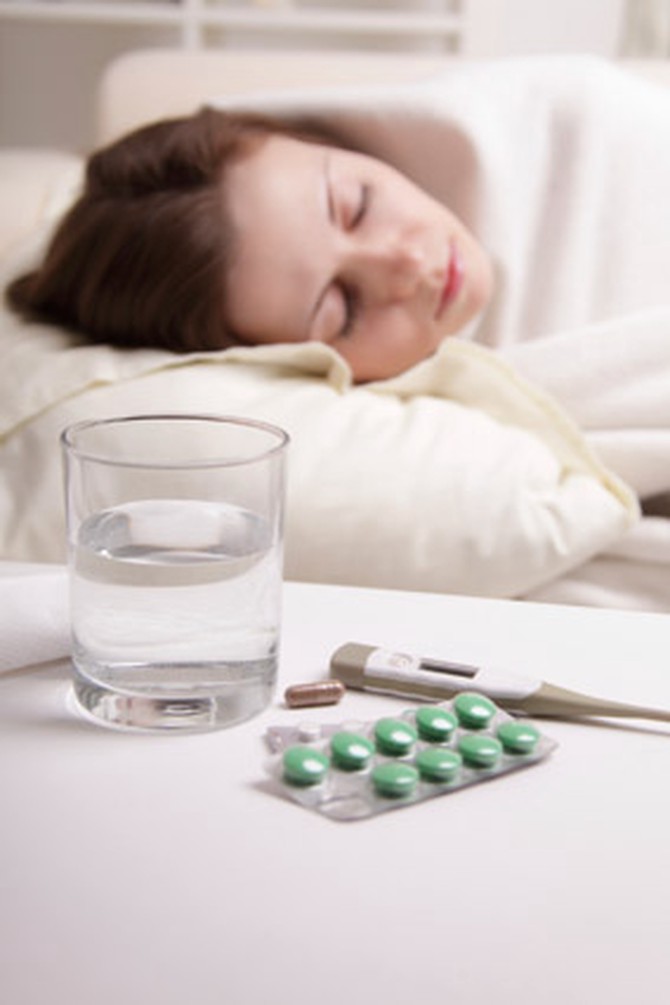
Photo: Thinkstock
"Sleeping pills will knock you out for the entire night."
In clinical studies, people taking sleeping pills slept only about 20 to 40 minutes more than those taking a placebo. "But if you ask people how much more sleep they got while taking the pills, they tend to overestimate," says Michael A. Grandner, PhD, research associate at the Center for Sleep and Circadian Neurobiology at the University of Pennsylvania. He adds that the sleep quality of pill-taking patients tended to be sound, but it was still shallower than nonmedicated sleep. Grandner and other researchers are currently looking into why people give sleeping pills more credit than they may deserve. "People with insomnia have more brain activation during the night," he says, "and we think the pills may be working on that process—not by helping them sleep more—but by changing brain processes like memory that cause them to simply think they're getting more rest."
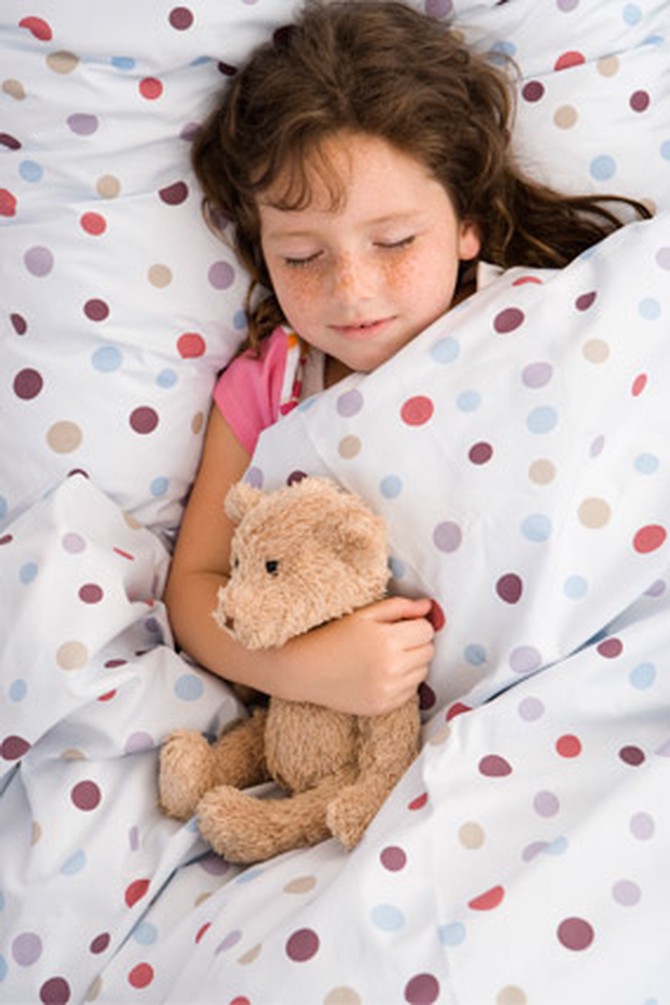
Photo: Thinkstock
"A perfect night's sleep is one long, luxurious snooze."
Some researchers are now questioning the idea of a long uninterrupted sleep, says David N. Neubauer, MD, an associate professor at Johns Hopkins University School of Medicine. There's some evidence to show that in darker, earlier times, before LEDs or wall sconces, people tended to sleep in two phases. "Sleep historians like A. Roger Ekirch have found that people would sleep deeply for half the night, get up and do things for an hour or so, then fall back to sleep for a few more hours," says Neubauer. Some lab studies have supported this: One study from the 1990s showed that when people were kept in the dark for 14 hours, they fell into a similar pattern of a two-phase sleep. So if you happen to be one of those people who sleeps, wakes, pays bills, then sleeps again, Neubauer says you shouldn't assume there's something wrong with you (if you're still getting seven to eight hours and you're not zonked during the day, of course).
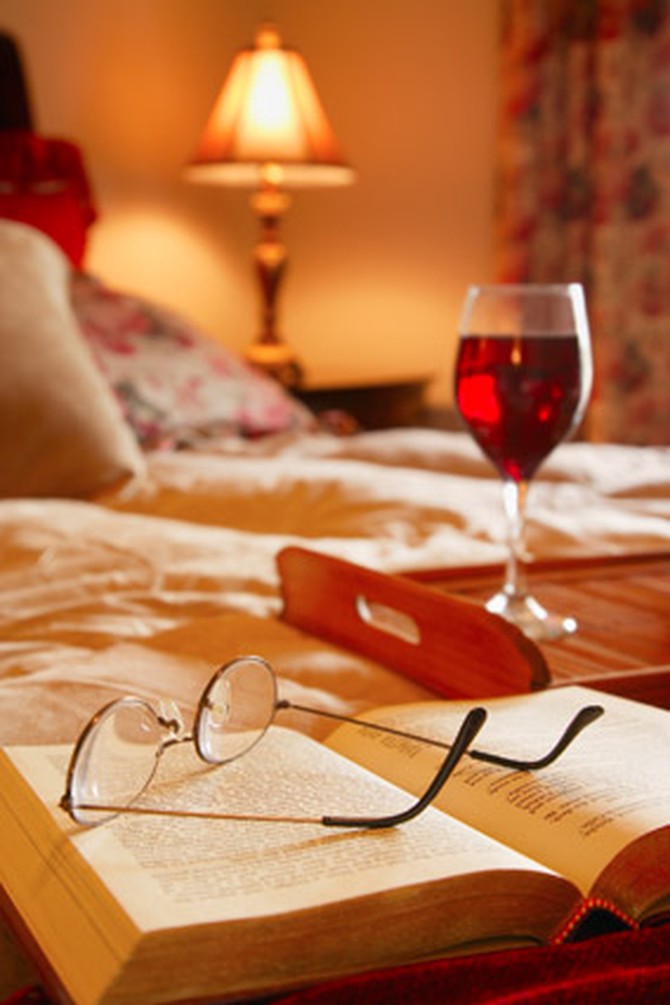
Photo: Thinkstock
"A glass of wine before bed will help you sleep better."
"Wine can be both the best and worst sleep hypnotic," says Allison T. Siebern, PhD, CBSM, clinical assistant professor and the associate director of the Insomnia & Behavioral Sleep Medicine Program at Stanford University School of Medicine. It's true that a glass of pinot noir will lower your stress levels and put you in a more relaxed mood, which can put you in the right frame of mind to sleep. But if you have that glass right before bed, it will probably break down in your system approximately three or four hours later, causing you to sleep fitfully or wake up, says Siebern. Instead of a nightcap, she recommends having your drinks with dinner, or at least three to four hours before bedtime.
Next: 14 reasons you still can't sleep
Next: 14 reasons you still can't sleep
Published 11/14/2013
As a reminder, always consult your doctor for medical advice and treatment before starting any program.

